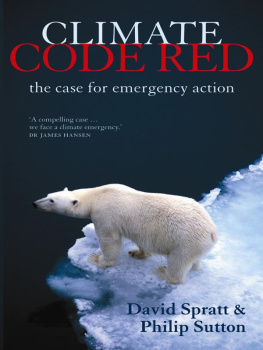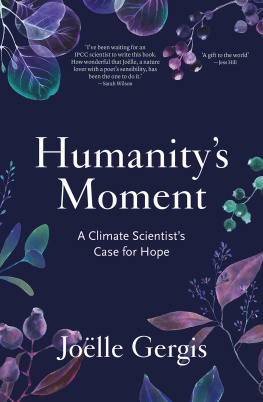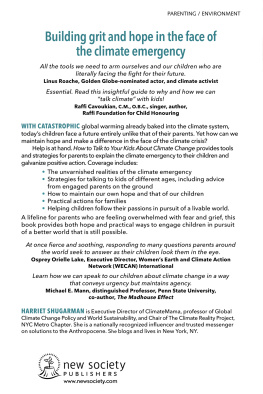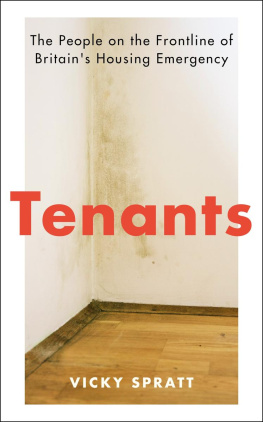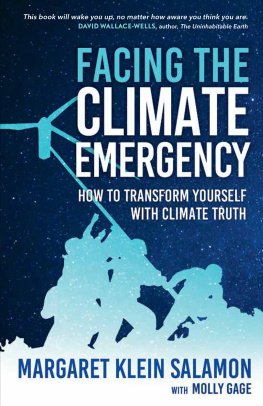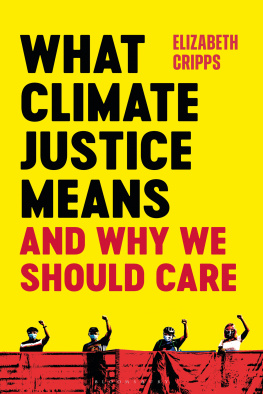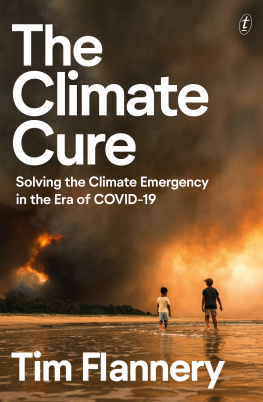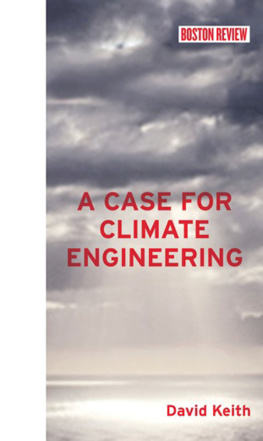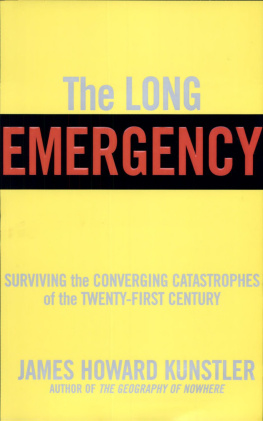David Spratt - Climate Code Red: The Case for Emergency Action
Here you can read online David Spratt - Climate Code Red: The Case for Emergency Action full text of the book (entire story) in english for free. Download pdf and epub, get meaning, cover and reviews about this ebook. year: 2008, publisher: Scribe, genre: Children. Description of the work, (preface) as well as reviews are available. Best literature library LitArk.com created for fans of good reading and offers a wide selection of genres:
Romance novel
Science fiction
Adventure
Detective
Science
History
Home and family
Prose
Art
Politics
Computer
Non-fiction
Religion
Business
Children
Humor
Choose a favorite category and find really read worthwhile books. Enjoy immersion in the world of imagination, feel the emotions of the characters or learn something new for yourself, make an fascinating discovery.
- Book:Climate Code Red: The Case for Emergency Action
- Author:
- Publisher:Scribe
- Genre:
- Year:2008
- Rating:3 / 5
- Favourites:Add to favourites
- Your mark:
- 60
- 1
- 2
- 3
- 4
- 5
Climate Code Red: The Case for Emergency Action : summary, description and annotation
We offer to read an annotation, description, summary or preface (depends on what the author of the book "Climate Code Red: The Case for Emergency Action " wrote himself). If you haven't found the necessary information about the book — write in the comments, we will try to find it.
Climate Code Red: The Case for Emergency Action — read online for free the complete book (whole text) full work
Below is the text of the book, divided by pages. System saving the place of the last page read, allows you to conveniently read the book "Climate Code Red: The Case for Emergency Action " online for free, without having to search again every time where you left off. Put a bookmark, and you can go to the page where you finished reading at any time.
Font size:
Interval:
Bookmark:

Advance praise for Climate Code Red
This is a frightening but clear-eyed, well-informed, and sober consideration of the weight of evidence and argument on the imminent and quite possibly cataclysmic impacts of climate change. It is a wake-up call and antidote to the sanitised reporting on the state of the planet and global warming. As a social and environmental psychologist reader, this critical overview is impressive, comprehensive, and convincing.
DR J OSEPH R ETTER
Recent greenhouse gas emissions place the Earth perilously close to dramatic climate change that could run out of our control, with great dangers for humans and other creatures. There is already enough carbon in the Earths atmosphere for massive ice sheets such as West Antarctica to eventually melt away, and ensure that sea levels will rise metres in coming decades. Climate zones such as the tropics and temperate regions will continue to shift, and the oceans will become more acidic, endangering much marine life. We must begin to move rapidly to the post-fossil fuel clean energy system. Moreover, we must remove some carbon that has collected in the atmosphere since the Industrial Revolution. This is the story that Climate Code Red tells with conviction. It is a compelling case for recognising, as the UN secretary-general has said, that we face a climate emergency.
Dr J AMES H ANSEN, director of the National Aeronautics and Space Administration Goddard Institute for Space Studies
Climate Code Red applies an uncommon degree of common-sense to the latest climate science, and is a well-researched basis for building a truly meaningful response. It makes it abundantly clear that greenhouse-gas emissions have to stop entirely, and that even this must sit in a larger plan to manage our destabilised earth-atmosphere system.
T IM H ELWEG- L ARSEN, Director, Public Interest Research Centre, UK
David Spratt and Philip Sutton have provided a valuable and sobering contribution to the policy challenge of climate change at a pivotal moment, with their key insight that the expectation of failure has become the norm in climate policy. Climate Code Red is a significant contribution which should be read by anyone seriously contemplating how to set greenhouse emission-reduction targets.
S ENATOR C HRISTINE M ILNE, Australian Greens Party
Having been involved with global warming climate change as a researcher in environmental health for 25 years, I can say that this is without question by far the best book to date on this issue the first book to have the integrity to say how the situation really is.
DR P ETER C ARTER, Canada
Scribe Publications
CLIMATE CODE RED
David Spratt is a Melbourne businessman, climate-policy analyst, and co-founder of Carbon Equity, which advocates personal carbon allowances as the most fair and equitable means of rapidly reducing carbon emissions. He has extensive advocacy experience in the peace movement, and in developing community-campaign communication and marketing strategies.
Philip Sutton is the convener of the Greenleap Strategic Institute, a non-profit environmental-strategy think tank and advisory organisation promoting the very rapid achievement of global and local ecological sustainability. He is also the founder and director of strategy for Green Innovations, and an occasional university lecturer on global warming science and strategies for sustainability.
Philip has worked on a number of advisory and policy committees for Australian state and federal governments, was the architect of the Victorian Flora and Fauna Guarantee Act, and is a former president of the Australian and New Zealand Society for Ecological Economics (20012003).
CLIMATE
CODE RED
the case for emergency action
David Spratt
& Philip Sutton

Scribe Publications Pty Ltd
PO Box 523
Carlton North, Victoria, Australia 3054
Email: info@scribepub.com.au
Published in Australia and New Zealand by Scribe 2008
Copyright David Spratt and Philip Sutton 2008
All rights reserved. Without limiting the rights under copyright
reserved above, no part of this publication may be reproduced,
stored in or introduced into a retrieval system, or transmitted,
in any form or by any means (electronic, mechanical, photocopying,
recording or otherwise) without the prior written permission of the
publisher of this book.
Cover design by Tamsyn Hutchinson
Typeset in 11.5/15 pt Dante by the publishers
Printed and bound in Australia by Griffin Press
Only wood grown from sustainable regrowth forests is used in the manufacture of paper found in this book.
National Library of Australia
Cataloguing-in-Publication data
Spratt, David.
Climate code red: the case for emergency action
Carlton North, Vic.: Scribe Publications, 2008.
9781921753022 (e-book)
Global warming; Global temperature changes.
363.73874
www.scribepublications.com.au
For Helen OShea
David
To my children, Dan and Joey
Philip
Contents
Note
All temperatures cited in this book are in Celsius, and increases in temperature are from 1750 pre-industrial levels unless otherwise stated.
Ian Dunlop
As the worlds population rises toward nine billion by mid-century, the inevitable logic of exponential growth in consumption is now hitting the real limits of global ecosystems and resource availability. The immediate pressure points are human-induced climate change, water availability, and peaking global oil supply, which are converging rapidly in a manner not previously experienced. But those pressure points constitute only the tip of the broader global-sustainability iceberg: further constraints and limits will become increasingly evident as the major developing countries move up the growth escalator.
This situation is not unexpected: it has been forecast for decades, going back before the 1972 publication of The Limits to Growth , a book that described how expanding human population and consumption patterns would run up against the limits of the natural world. In the meantime, we have created a political and capitalist system which has proved incapable of recognising that the most important factor for its own survival is the preservation of a global biosphere fit for human habitation. Our institutions are totally short-term focused: politically, due to the electoral cycle, and corporately, due to perverse incentives. Thus, we are uniquely ill-equipped to handle these major problems, which are all long-term.
Our ideological preoccupation with a market economy that is based on maximising short-run profit is rapidly leading us towards an uninhabitable planet. As inconvenient as it may be, politically and corporately, conventional economic growth and rampant consumerism cannot continue. Markets are important, but they operate within rules; henceforth, the rules must change to ensure long-run sustainability.
Nationalism and short-term vested interests have so far prevented the development of a global governance framework capable of handling this Tragedy of the Commons, and the issue of global sustainability is now much bigger than any nation state. Global warming, in particular, is moving far faster than scientists had predicted, to the point that we are already in the danger zone.
The stark fact is that we face a global sustainability emergency, but it is impossible to design realistic solutions unless we first understand and accept the size of the problem. We know those solutions; what is lacking is the political will, first, to honestly articulate the problem and, second, to implement those solutions.
Next pageFont size:
Interval:
Bookmark:
Similar books «Climate Code Red: The Case for Emergency Action »
Look at similar books to Climate Code Red: The Case for Emergency Action . We have selected literature similar in name and meaning in the hope of providing readers with more options to find new, interesting, not yet read works.
Discussion, reviews of the book Climate Code Red: The Case for Emergency Action and just readers' own opinions. Leave your comments, write what you think about the work, its meaning or the main characters. Specify what exactly you liked and what you didn't like, and why you think so.

